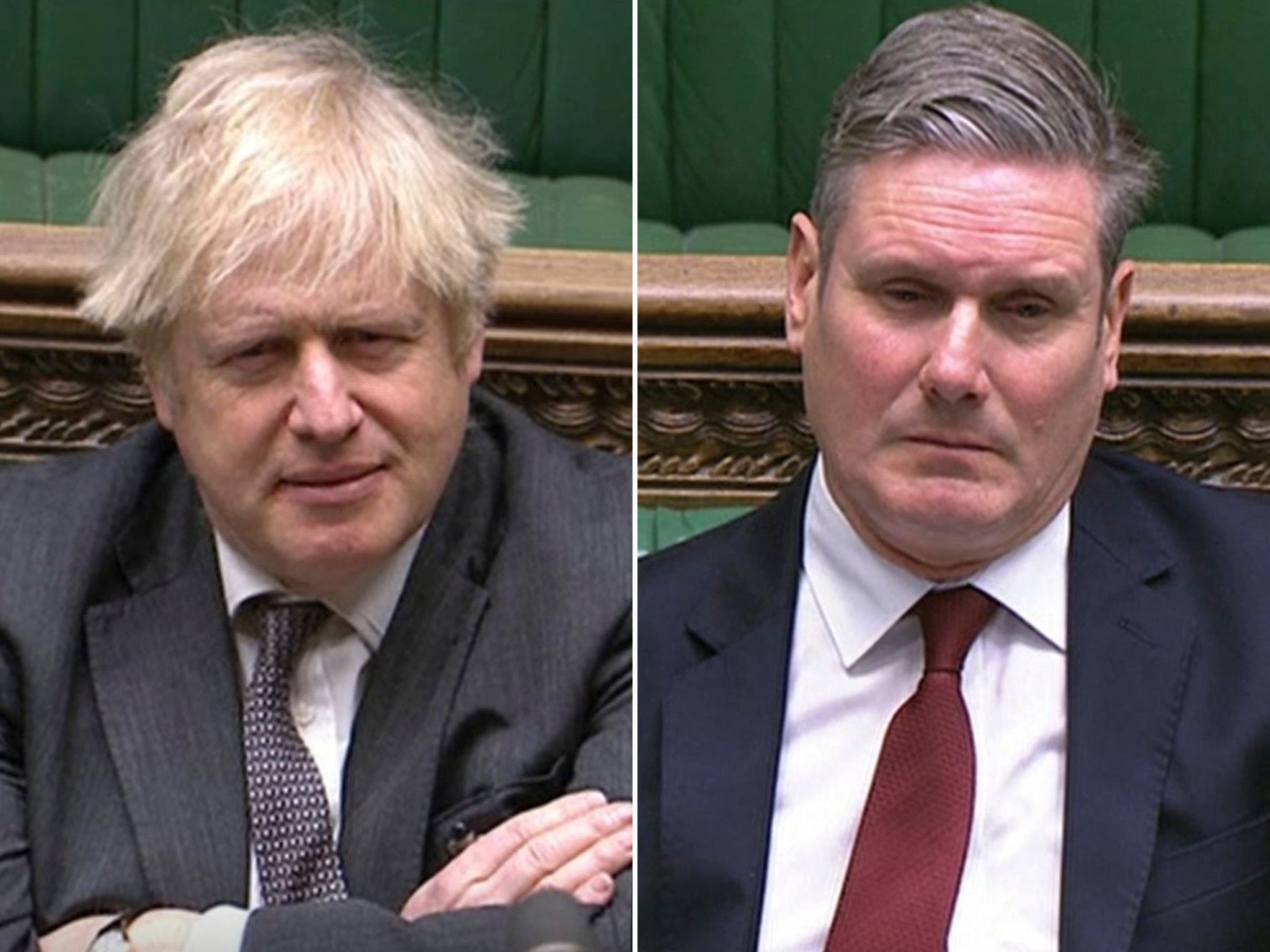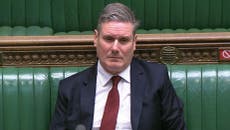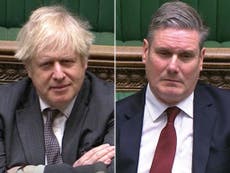Boris Johnson hopes and Keir Starmer fears that Brexit will go on for ever
The prime minister set some traps for the Labour leader, and Starmer may face more issues over our exit from the EU, writes John Rentoul


Boris Johnson won’t have many days like this in parliament, so it was no wonder he announced his intention to re-run the scene of his greatest triumph whenever possible: “We got Brexit done; let’s keep Brexit done.”
He was putting Keir Starmer on notice that he was going to use Brexit against the Labour Party for ever and a day. Starmer knows it, as the permanent wince on his face revealed. So he did what he could to prepare for the assault. He asked his MPs to vote for the deal, because he is good enough at politics to see a couple of moves ahead.
He would rather the Conservatives threw back at him, “But you voted for it,” every time he criticised the terms of trade with the EU, than that they called him a fence sitter, or Keir Abstarmer, or the Brexit obstructionist who couldn’t decide.
In the end 37 of his MPs couldn’t agree with him, although to lose three junior frontbenchers, Helen Hayes, Florence Eshalomi and Tonia Antoniazzi, was not much of a rebellion, certainly not on a question – Europe – that has so deeply divided both main parties for so long. Bell Ribeiro-Addy, co-chair of the Corbynite Socialist Campaign Group, was the only Labour MP to vote against the bill, joining the Scottish National Party and the Liberal Democrats in symbolic opposition.
For the rest of the Labour rebels, their defiance took the form of not voting. Abstention might seem the easy way out, but it is not so easy for a party that aspires to government to say that it cannot decide on such a national-historical question. Starmer pleaded indirectly with his rebels by turning his fire on the SNP and Lib Dems for voting against a deal that they wanted to pass: “Those voting no today want yes; they want others to save them from their own vote.”
He didn’t address the question of not voting, but his argument applied to the would-be abstainers by implication. He might have said: “Those not voting today want yes; they want others to save them from their inability to make up their mind.” Chris Bryant, a Labour MP who doesn’t have a shadow ministerial post to lose, captured the feeling of many of his colleagues: “I hate abstaining. It means relying on others to vote for you. So I will vote for the bill with a heavy heart and devote myself to putting right the damage.”
The unhappiness on the opposition benches was the mirror image of the smugness on the government side. The prime minister was even fuller of good cheer than ever, having achieved, one way or another, everything he set out to achieve on that fateful afternoon in February 2016 when he decided to put himself at the head of the referendum campaign to leave the EU. He even allowed Michael Gove, whose betrayal caused one of the many diversions along the way, to wind up the debate for the government.
They both enjoyed themselves. Johnson made fun of Starmer for finding “yet another position on Brexit” – that of voting for it. Gove said of the leader of the opposition: “His attitude to the EU is rather like his attitude to his former leader – he wants us to forget all about it.”
But it was notable that the prime minister laid some traps for the future. He asked what kind of better deal Starmer would have negotiated if he had been in No 10: “Perhaps he can tell us whether he would have remained within the customs union and within the single market.”
Those are questions that Starmer sought to deflect in an interview published before the vote. “I’m determined the next general election will be fought on our terms, not somebody else’s terms,” he said. But it may not be possible to avoid questions such as whether Labour wants to go back into the EU customs union. That is a particularly awkward question for Starmer, because everything Labour has ever said about Brexit implies that abolishing customs checks would be a good idea.
Johnson gave a preview of the next election campaign, enquiring innocently of Starmer: “Perhaps he will also say a little bit about how he proposes to renegotiate the deal, build on it and take the UK back into the EU, because that remains his agenda.”
What does Starmer mean by “building on” the trade deal? Does he think that the UK could eventually rejoin the EU? These are not questions that can be brushed aside in an election.
Starmer said in his interview: “Will the renegotiation of the treaty be central to the manifesto? No.” But it may not be up to him to decide.
We can see already one of the slogans on which Johnson intends to fight the next election: “Let’s keep Brexit done.” Starmer realises what a serious threat it poses to his electoral hopes.




Join our commenting forum
Join thought-provoking conversations, follow other Independent readers and see their replies
Comments